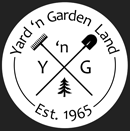Planting, Feeding, Watering, Pests & Diseases
Keeping Your Indoor Plants Healthy
If you are new to growing indoor plants or just need some basic tips, read on to learn about general care, pest control and disease control.
General Care
Light
Most indoor plants like bright, diffused light. Avoid hot, direct sun. Some varieties will tolerate low light areas.
Low light plants include: Snake plant, ZZ plant, Spider plant, Maranta and Peace Lily.
Water
Careful watering is important in order to prevent root rot and disease. Check the soil often by dipping your finger down into the soil.
Containers
Plants like to be somewhat snug in their containers. The pot’s diameter should not be more than a few inches wider than the root ball.
Humidity
Tropical plants and ferns benefit from humidity. You may mist the leaves, use a humidifier or place pots in a shallow tray of pebbles with water. This helps prevent browning at the tips of the leaves.
Drainage
All plants need drainage. Make sure the pot has drainage holds at the base. If you have a decorative pot without holes, simply keep the plant in its nursery pot and set it inside the decorative container. When it’s times to water, remove the plant with its nursery pot and water it over the sink. Allow the water to drain out before setting it back into the decorative container.
Fertilizer
Indoor plants grow during the spring and summer months and are at rest in the fall and winter. Spring and summer is the best time to fertilize. Use a fertilizer specifically made for indoor plants. Quantity and frequency depend on the product. Do not feed in fall and winter.
Common Damaging Insects
Your plant was looking so beautiful and suddenly the leaves seem to be discolored or there is some weird web stuff under the leaves! Insects love to feed on your indoor plants. Here is a list of the most common, how to identify them and how to get rid of them.
Fungus Gnats: Small flies attracted to the moisture of the soil. Larva feed on fungi and decaying plant material. If highly infested, larvae can feed on plant roots.
Spider Mites: Very tiny arachnids living in colonies on the undersides of leaves. They suck sap from leaves leaving tiny white or yellow spots. You may see silky webs woven around leaves and stems. Leaves may turn yellow, dry up and drop off.
Mealy Bugs: Soft-bodied, wingless insects look like masses of white cotton on leaves, stems and fruits. They draw sap out of plant tissue. High levels of infestation causes leaf yellowing, curling and plant weakness. Look for honeydew and sooty mold.
Thrips: Resembling tiny threads, these straw colored or black insects have feathery wings. They suck on leaves and flowers. When disturbed they leap or fly. Infested plants turn pale, splotchy and silvery then die.
Whiteflies: These soft-bodies, winged insects suck on leaves and stems. May see honeydew and sooty mold. Heavy infestations will cause leaves to wilt and turn pale or yellow. Growth will be stunted and leaves shrivel and drop.
Insect Control
Pyrethine: Apply a product that contains Pyrethine to quickly kill problem insects.
Neem: Spray neem oil onto plants to prevent insects from chewing and sucking on leaves.
Common Diseases
Fungal Leaf Spots: Brown spots on leaves
Bacterial Leaf Spots: Black-edged lesions, brown spots with yellow halos, or light and dark areas on foliage. Leaves can become papery and delicate.
Powdery Mildew: Powdery, white spots on leaves and stems. Caused by soil that is too wet.
Root Rot: Roots become mushy and fall apart causing the plant to wilt and yellow.
Disease Control
Fungal Leaf Spots, Bacterial Leaf Spots and Powdery Mildew:
Prevention is best. Avoid overwatering and water the soil only, not foliage. Do not let water sit on leaves. Spray infected plant with neem oil to control diseases. Isolate infected plants from healthy plants to avoid contamination.
Root Rot:
You can prevent root rot by watering carefully, avoid overwatering. To treat root rot, remove plant from pot, rinse roots and remove damaged roots. Dispose of infected soil. Repot plant in new potting soil.
Plant Toxicity
Many common houseplants are toxic to animals. If you have a pet that likes to chew on plants be sure to check with your veterinarian regarding non-toxic varieties. For more information visit aspca.org.
YARD ‘N GARDEN LAND
1501 NE 102nd Street
Vancouver, WA 98686
360.573.7172
STORE HOURS
Monday – Saturday: 8:00am – 6:00pm
Sunday: 9:00am – 5:00pm
HOLIDAY HOURS
Memorial Day: Close at 4pm
July 4th: CLOSED
Thanksgiving Day: CLOSED
Christmas Eve: Close at 2pm
Christmas Day: CLOSED
December 26th: CLOSED
New Year’s Eve: CLOSED
New Year’s Day: CLOSED
